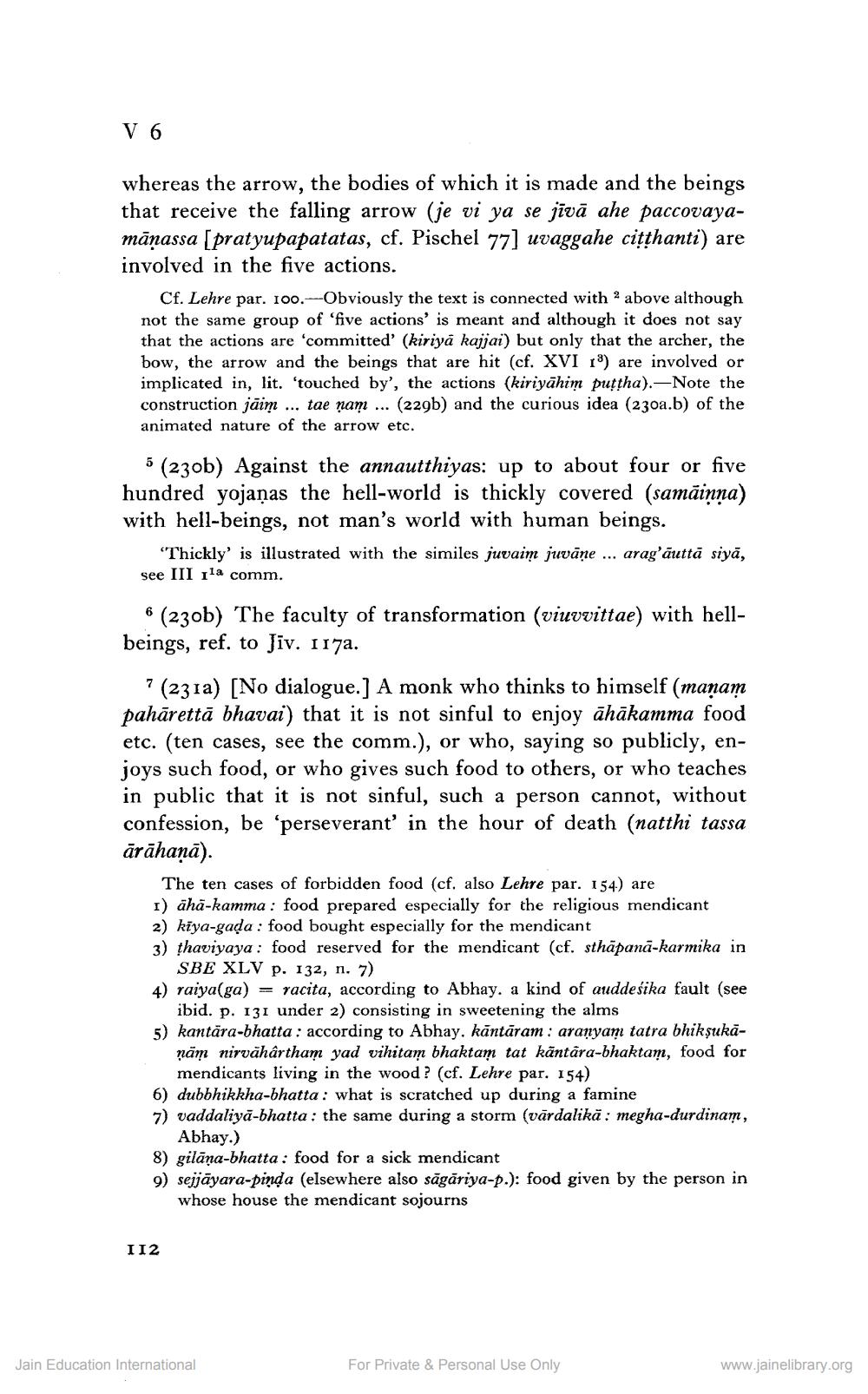________________
V 6
whereas the arrow, the bodies of which it is made and the beings that receive the falling arrow (je vi ya se jīvā ahe paccovayamāṇassa (pratyupapatatas, cf. Pischel 77] uvaggahe cițțhanti) are involved in the five actions.
Cf. Lehre par. 100.--Obviously the text is connected with 2 above although not the same group of 'five actions' is meant and although it does not say that the actions are committed' (kiriya kajjai) but only that the archer, the bow, the arrow and the beings that are hit (cf. XVI 19) are involved or implicated in, lit. 'touched by', the actions (kiriyāhim puţtha).—Note the construction jāim ... tae nam ... (229b) and the curious idea (230a.b) of the animated nature of the arrow etc.
5 (230b) Against the annautthiyas: up to about four or five hundred yojaņas the hell-world is thickly covered (samāinna) with hell-beings, not man's world with human beings.
"Thickly' is illustrated with the similes juvaim juvāne ... arag'āuttă siyā, see III 11a comm.
6 (230b) The faculty of transformation (viuvvittae) with hellbeings, ref. to Jiv. 117a.
? (231a) [No dialogue.] A monk who thinks to himself (manam pahārettā bhavai) that it is not sinful to enjoy āhākamma food etc. (ten cases, see the comm.), or who, saying so publicly, enjoys such food, or who gives such food to others, or who teaches in public that it is not sinful, such a person cannot, without confession, be 'perseverant in the hour of death (natthi tassa ārāhaņā).
The ten cases of forbidden food (cf. also Lehre par. 154) are I) āhā-kamma : food prepared especially for the religious mendicant 2) kiya-gada : food bought especially for the mendicant 3) ţhaviyaya : food reserved for the mendicant (cf. sthāpanā-karmika in
SBE XLV p. 132, n. 7) 4) raiya(ga) = racita, according to Abhay. a kind of auddešika fault (see
ibid. p. 131 under 2) consisting in sweetening the alms 5) kantāra-bhatta : according to Abhay. kāntāram : aranyam tatra bhikṣukā
ņām nirvähârtham yad vihitam bhaktam tat käntära-bhaktam, food for
mendicants living in the wood ? (cf. Lehre par. 154) 6) dubbhikkha-bhatta : what is scratched up during a famine 7) vaddaliya-bhatta: the same during a storm (vārdalikă: megha-durdinam,
Abhay.) 8) gilāna-bhatta : food for a sick mendicant 9) sejjāyara-pinda (elsewhere also sāgāriya-p.): food given by the person in
whose house the mendicant sojourns
II2
Jain Education International
For Private & Personal Use Only
www.jainelibrary.org




